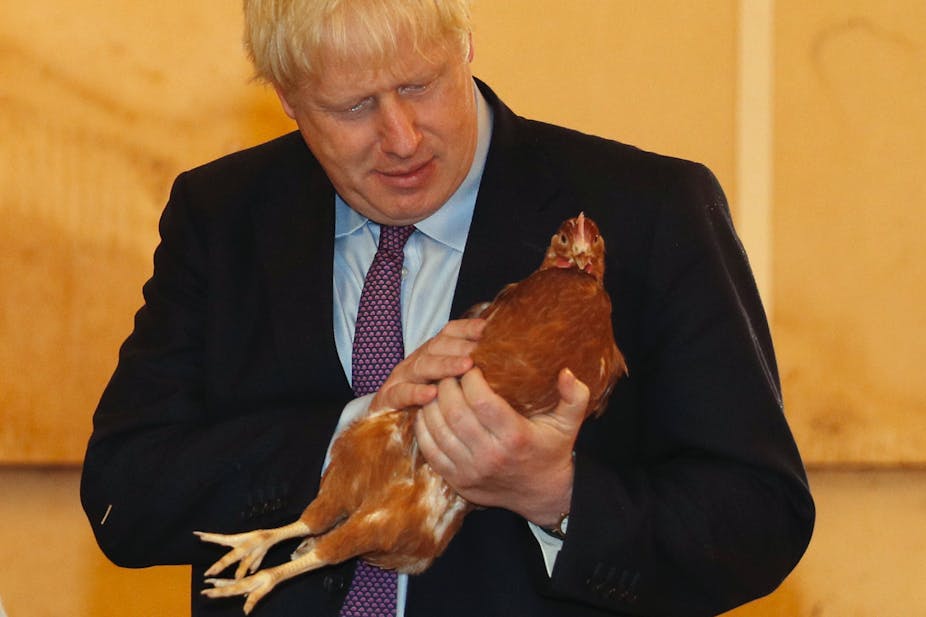Westminster is alive with speculation about an autumn general election, with advisers’ leave cancelled and the Treasury’s wallet open. But the last prime minister learned to her cost that those who start the campaign do not always determine its course.
Boris Johnson has not formally announced any such plan, but it is being heavily trailed. A general election could take place before, but in practice more likely after, a no-deal Brexit at the end of October. Johnson intends for the campaign to be fought on the theme of “the people versus the politicians”. He aims to present himself as the champion of popular opinion, as expressed in the 2016 referendum against a patronising and detached establishment. That appears to mean parliament, the courts and the media, all of whom, his team argues, are determined to frustrate the implementation of the 2016 EU referendum result.
This is a high-stakes strategy for which the current evidence looks good, but the historical precedents are more mixed.
Public opinion, as demonstrated in elections and polls, seems static since 2016. The nation is evenly divided between Leavers and Remainers, though now Remainers are divided between those resigned to defeat and those determined to seek a new referendum, and Leavers are split over the type of new relationship with the EU they would prefer.
Johnson hopes to unite Leavers by marginalising the Brexit Party. He also knows that Remain opinion is divided between Labour, the Liberal Democrats and other opposition parties. This could grant him a parliamentary majority, even with significantly less than half the vote (bear in mind, Tony Blair won a majority of 60 on 35% of the vote in 2005).
There are, however, serious problems here. One is Johnson himself. He is untested electorally at national level, and his initial bounce in the polls is no better than those enjoyed by Theresa May or Labour’s Gordon Brown when they took office. Both of these, of course, subsequently led their parties in disastrous election campaigns.
Johnson’s credentials as a man of the people are slim. He has been a politician for most of his adult life and spent his childhood at the school which has been the nursery of 20 prime ministers. Even before starting at that school, he was declaring his ambition to be “World King”. Boris is the consummate politician – he is an outsider only to everyday British life.
Johnson’s weaknesses in public and private life – his conduct as a member of the Bullingdon Club, various affairs, his failed multi-million pound Garden Bridge project in London, and the Nazanin Zaghari Ratcliffe gaffe – did not dent support amongst his admirers before his recent promotion. But as premier he may lack the consensus-building skills to resolve Brexit by reaching to a wider audience in a potentially volatile economic environment.
The dangers of division
The history of populist, binary confrontational election campaigns in British politics also offers as much discouragement as hope to the prime minister.
In 1910, David Lloyd George’s Liberals ran a “peers versus the people” campaign in an attempt to pass a radical “people’s budget” which taxed the super-rich to pay for welfare benefits for the old, unemployed and sick. He hoped to paint the House of Lords as self-interested for blocking his budget, while they claimed they were exercising their right to veto a change in the role of the state for which Lloyd George had, in their view, no mandate.
The gamble ended in the Liberals losing their three-figure majority despite two elections in a year. A parliamentary stalemate eventually had to be resolved by the support of Irish MPs, and the Liberals never again governed alone.
Other campaigns have prompted more potent counter-claims or misread the public mood. In 1945 Churchill’s “Help him Finish the Job” slogan, referring to his war record, was successfully answered by Labour’s “Help THEM finish their job!” – a slogan used on images of servicemen looking to the future and the business of reconstruction.
And the Conservatives’ “New Labour, New Danger” campaign of 1997 was suspended because focus groups showed the public did not understand what was “new” about the threat posed by Blair. John Major also withdrew a Conservative party political broadcast depicting Blair in a Faust-like role with Peter Mandelson as Mephistopheles, saying “it would fail and it would deserve to fail”.

The deepest danger to Johnson’s proposed slogan is that “the people vs. the politicians” could easily be read as “the people vs. parliament”. The UK is not a Trump-style system of presidential rule, but an embedded parliamentary democracy, and voters – with a national memory going back to 1910 and even to the civil war – may not back him in enough numbers in such a fight. It was, after all, to protect the rights of parliament that many voted Leave.
It may be just over 390 years since Charles I’s arrogance towards parliament - dismissing it when it refused to accept his policies - proved fatal. Johnson might yet be sloganised not as the man of the people – but as “King Boris”. Perhaps the prime minister should be careful what he wishes for.

